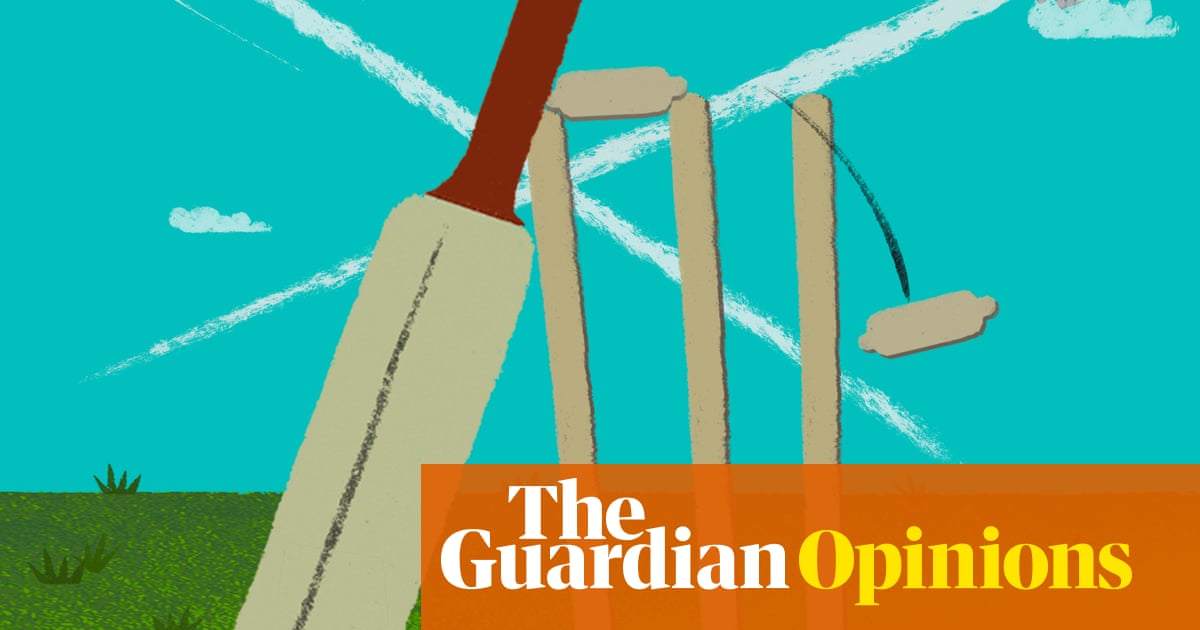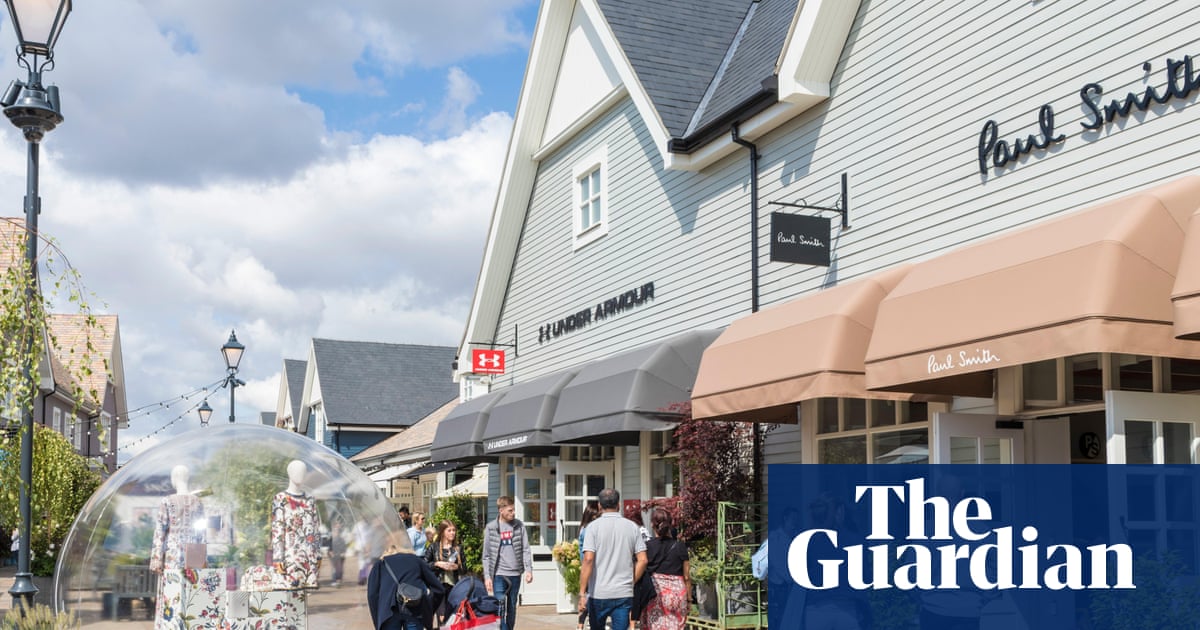Key events
Right, that’s it from me, but Nadeem is taking over the baton and will bring you any more reaction, while we’ll have a report from our man in Paris, Paul MacInnes, shortly. And do also join us tomorrow, when we’ll have live coverage of the sporting action. Thanks for your company and messages this evening. A demain!
Fireworks bring the show to an end. Many on social media are saying this is the best ever Paralympics opening ceremony. The pure Parisian cheer and glee of the Olympics opening ceremony was replaced here by something much more considered, powerful and atmospheric. It wasn’t only beautiful and enchanting but delivered such an important message about disability, diversity and inclusivity. And Paris, once again, provided the perfect backdrop. “As good as London 2012” says Rob Walker on Channel 4. I think it may just have been better.
The Paralympic cauldron is lit
The balloon over the cauldron seems other wordly, it almost looks like a giant gold moon, with the Eiffel Tower still sparkling in the background. This is so visually striking. And five French athletes – Charles-Antoine Kouakou, Fabien Lamirault, Elodie Lorandi, Alexis Hanquinquant and Nantenin Keïta – have the honour of lighting the cauldron.
They present their flames to the cauldron at the same time, and in the words of the French, la fête continue! Seventeen days after the Olympics ended, the sporting party is back on! To mark the moment, Christine and the Queens is back to sing Born to be Alive and the Paralympics is officially under way. And we got through the whole ceremony without seeing Snoop Dogg once.
The Paralympians involved in the torch ceremony include Bebe Vio, the Italian star fencer whose face I’ve seen on many billboards on the London Underground over the past couple of months, the American multisport athlete Oksana Masters and the German long jumper Markus Rehm. The flame has now left the Place de la Concorde, as it’s carried to the Jardin des Tuileries and the unique cauldron that was used for the Olympics, which is attached to a hot-air balloon that will fly over the French capital every evening during the Paralympics.
A video shows the journey the Paralympic flame has taken to get here. It was lit on Saturday by the British Paralympians Helene Raynsford and Gregor Ewan in Stoke Mandeville, which is widely considered the birthplace of the Games. It then travelled to France, where it was split into 12 flames – representing the number of days the Paralympics will take place for – which have travelled around the country, from the Atlantic to Mediterranean coasts, from the mountains in the Pyrenees to the Alps, before arriving in Paris. And now Ravel’s Boléro is played as the flames come together, courtesy of 12 Paralympians, on the Place de la Concorde.
Next one of my favourite musicians, the Frenchman Sébastien Tellier, provides an atmospheric soundtrack as we prepare for the arrival of the Paralympic frame. The ceremony has gone over its expected finish time of 11pm Paris time/10pm UK time, but I don’t think anyone wants this to end.
Four French athletes read out the Paralympic oath, pledging to honour and respect their fellow athletes and the Paralympic spirit.
The Paralympic flag is brought on to the stage by Britain’s John McFall, a bronze medal winner in Beijing and an astronaut, and the French sailor Damien Seguin, while Luan Pommier, a visually impaired musician, plays the piano. And then the flag is raised as the Paralympic anthem fills the Place de la Concorde, which is now illuminated a pale blue, as Pommier sings to a hushed silence in the crowd. Another special moment to add to the many we’ve had this evening. The camera then pans to the Arc de Triomphe, which has the Agitos logo, the Paralympic symbol, on it.
Organisers are calling the current choreography “sportography”, adding: “It’s difficult to tell if you’re watching a dance performance, a sports game, or an art piece, blending dance, sport and art into a fictional game that highlights teamwork, where people with and without disabilities invent new sports in which everyone can participate.”
There’s another group of dancers on stage, dressed all in white, with the obelisk acting as the centre point, as white beams point into the night sky. It’s a stunning image and the dance is meant to represent strength, resilience, perseverance and determination. Musa Motha, the star of Britain’s Got Talent and America’s Got Talent who lost his left leg to cancer, then joins the dancers, before they all depart and he’s the only one left. After his solo the rest of the dancers return.
Here’s another VT, and the Canadian YouTube personality Molly Jane Lucy Burke, who is blind, speaks. Then it’s Martin Petit, and the amputee Lucie Retail. They talk about their disabilities and how they perceive themselves and are perceived by others. This, unsurprisingly, is a much more thought-provoking ceremony than the kitsch spectacle that opened the Olympics.
The 2024 Paralympics are open
“Through the power of sport let’s show world leaders that unity if possible,” Parsons says, finishing off with a “Vive la France!” before inviting Emmanuel Macron to declare the 2024 Paralympics open, which the French president duly does.
Now Andrew Parsons, the president of the International Paralympic Committee, speaks. “At a time of growing conflict and exclusion, let sport bring us together,” he says. “Let sport serve as a powerful force for good. Eleven days of sensational sport to enjoy together. A once-in-a-lifetime opportunity to champion your country’s rich diversity and celebrate the best of Paris, France and humanity. Let us open our minds wide.” He says the Place de la Concorde was central to the French revolution and tonight stages the start of another revolution. “Liberté, égalité, fraternité!” he exclaims.
Estanguet continues. “Thank you dear athletes. There are 4,400 Paralympians in Paris. You are the best para athletes in the world. You represent 168 delegations. You inspire us. Above all, you will find an entire country in the love with the Games, who are so proud to host you for the very first time.” The crowd are stamping their feet in appreciation.
And now it’s time for the formalities. Here’s Tony Estanguet, the president of Paris 2024. He welcomes everyone to the “country of love and revolution”. “Tonight is the start of the most beautiful of revolutions, the Paralympic revolution,” he says.
He then tells the competitors: “Like our ancestors you have panache. Like them you are fighting for a cause bigger than you. In your case your weapons are your records. When they said it was impossible you did it. And tonight you’re inviting us to join you in your Paralympic revolution, to give everybody their full place. When the sport starts we will no longer see disabilities but champions. You have no limits, so let us stop imposing limits on you. A gentle revolution but one that is going to profoundly change us for ever. On the 9th September we will wake up different.”
There’s a spine-tingling montage of the some of the greatest ever Paralympic moments. And next, Mesdames et Messieurs, it’s time to stand for La Marseillaise, as the French flag is raised, with the Eiffel Tower glistening in the background. The decision to stage the opening ceremonies outside the confines of a stadium was questioned during the damp start to the Olympic ceremony, but I think it’s turned out to be a wonderful move that has showcased the very best of Paris.
The rest of the ceremony will now take place at the Place de la Concorde. This next section is called My Ability, and will give a voice to people with a range of disabilities. Here’s a VT. It begins with the statement “We’re not actually that different to everybody else” and sends a very powerful message over the next few minutes. Then it’s back to the Place de la Concorde stage, with a moving dance routine, featuring many dancers in wheelchairs, as the French performer Lucky Love sings.
Richard Hallmark emails from Paris. “I think that the world may never have seen before so many disabled people all together in one place at one time, many of them seriously disabled, many others with hidden – not obvious – disabilities, and out and proud, not hidden at home, or in institutions, hiding with the shame of being disabled. That’s some progress.”
I’m hungry. I wonder if there’s time for a bit of dinner before the next part of the ceremony gets under way. Channel 4 then helpfully cuts to an ad break so that’ll give me a few minutes. The ceremony is due to finish in about an hour’s time, in case you were wondering, and will end with the lighting of the Paralympic torch.
“The Olympic Games were a huge success, with lots of spectators, great enthusiasm and a great atmosphere,” Hanquinquant said before the ceremony. “Of course, we’re all hoping to experience that at the Paralympic Games too.
“We’ve got some iconic sites, and we’re going to get an eyeful. Paris is the most beautiful city in the world. I think we’re going to have a pretty exceptional Paralympic Games. The first leg is over, now there’s the second leg. Come and cheer us on, you won’t be disappointed. The party goes on.”
And last but not least it’s the hosts. Cue the earworm Les Champs-Elysées, which was played so many times during the Olympics. “Aux Champs-Élysées/Aux Champs-Élysées/Au soleil, sous la pluie/À midi ou à minuit/Il y a tout c’que vous voulez/Aux Champs-Élysées,” rings out as one of France’s main hopes for gold, the triathlete Alexis Hanquinquant, carries their flag.
Now it’s Australia, the hosts of the 2032 Games, followed by the USA! USA!! USA!!!, the hosts in 2028. The American flagbearers are Nicky Nieves and Steve Serio.
And here are the 140-strong Ukraine team. It’s remarkable that many of them have made it this far. Para sport budgets were slashed when the war started, as state funding was diverted to the army. Ukraine finished fifth in the medal table in Tokyo but, in the words of my colleague Nick Ames, have had to “stretch resources to the limit to make it to Paris”. He has this report on Ukraine’s Paralympic swimmers:
The music has veered from dance music, to jaunty Euro pop, to the 1970s, with about 40 delegations left to come. Ukraine will be guaranteed a welcome as warm as that for the Refugee Team, and they will be arriving soon, as we move on to the small delegations of Togo, Tonga and Trinidad & Tobago.
Zakia Khudadadi is one of the members of the Refugee Team. Born in Afghanistan, she represented her country in taekwondo in Tokyo just days after being evacuated from the country. She now lives in France, unable to return to Afghanistan, so will feel the strength of support from the home spectators.
Palestine receive one of the loudest cheers of the evening so far. And there’s a huge standing ovation for the Paralympic Refugee Team. Representing as many as 120m forcibly displaced people worldwide, this team is the biggest in their history, featuring eight athletes. Even the VIPs are on their feet.
I meant to mention when Italy arrived that the sprinter Valentina Petrillo will become the first openly transgender athlete to compete at the Paralympics, having been selected to represent her country in the women’s T12 classification for athletes with visual impairments. The 50-year-old, who transitioned in 2019, will run in the 200m and 400m. In 2021 more than 30 female athletes signed a petition that was sent to the Italian Athletics Federation challenging Petrillo’s right to compete in women’s races – but she says her participation in Paris will be an “important symbol of inclusion”.









